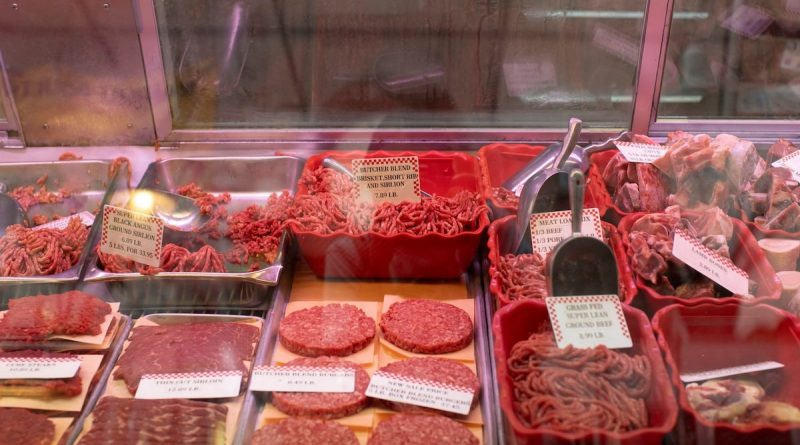Trump administration rolls back tariffs on key food imports amid inflation concerns
Washington — The U.S. administration on Friday announced a broad rollback of tariffs on more than 200 food products, citing growing concerns among Americans about rising grocery prices and the overall cost of living.
The move represents a notable shift from earlier trade positions. Tariff exemptions, effective retroactively from midnight on Thursday, include widely consumed items such as coffee, beef, bananas, orange juice, and various fruits, vegetables, and food-related materials.
Officials said the goal is to address persistent inflation pressure felt by households. Although overall inflation remains a contested political issue, food costs have consistently ranked among top concerns for voters across the country.
President Donald Trump acknowledged that tariffs “may in some cases” contribute to higher prices. However, he maintained that the United States currently has “virtually no inflation,” emphasizing that his broader trade strategy remains unchanged.
The decision comes shortly after Democrats secured several state and local wins in Virginia, New Jersey, and New York City.
Analysts noted that affordability, particularly high food prices, played an influential role in those election outcomes.
The administration also highlighted plans to issue a $2,000 payment to lower- and middle-income Americans next year.
Trump said this payment would be financed by tariff revenue, describing it as a potential “dividend” for households while also contributing to debt reduction efforts.
Alongside tariff adjustments, the White House announced framework trade agreements with Argentina, Ecuador, Guatemala, and El Salvador. Once finalized, these deals will eliminate tariffs on a range of imports and could pave the way for additional agreements before the end of the year.
Friday’s updated tariff list includes products commonly purchased by American families. Many have experienced significant price increases over the past year, including foods such as oranges, acai berries, cocoa, paprika, and numerous agricultural inputs.
The list also covers fertilizers, certain chemicals used in food processing, and even specialized items like communion wafers.
Officials said some products qualified for exemptions because they are not grown or manufactured within the United States.
According to a White House fact sheet, the action follows “significant progress” in securing more balanced and reciprocal trade relationships. The administration said its recent deals, alongside ongoing negotiations, reflect an effort to maintain flexibility while addressing domestic price concerns.
The latest Consumer Price Index data shows notable increases in several food categories. Ground beef prices were nearly 13% higher in September, while steaks rose almost 17% from the previous year—marking their steepest climb in more than three years.
Although the U.S. remains a major beef-producing nation, a prolonged shortage of cattle has limited supply. This scarcity has kept beef costs elevated despite the country’s strong agricultural output.
Bananas rose by around 7% over the past year, and tomatoes saw a smaller increase of roughly 1%. Overall, the cost of food consumed at home increased by 2.7% in September, reinforcing concerns among shoppers.
Industry reactions to the exemptions were mixed, with many groups praising the administration’s decision. Leaders in sectors such as grocery, packaging, and food production said the rollback could ease pressure on both consumers and manufacturers.
The Food Industry Association, which represents retailers and wholesalers nationwide, welcomed the changes. Its president, Leslie Sarasin, said more affordable coffee and other imports would support both households and companies that rely on imported ingredients.
Some trade groups expressed disappointment that their products did not receive exemptions. They urged the administration to consider further revisions, noting that competitive pricing is essential for sectors still facing high import costs.
Economists say the long-term impact of the tariff rollback will depend on global supply chains and domestic market conditions. They warn that price relief may not be immediate, as it can take time for lower import duties to work their way through distribution channels.
The policy shift marks one of the most significant tariff reversals of the current administration. It underscores the heightened political focus on cost-of-living issues and the pressure to show action ahead of future economic and electoral milestones.
As households continue to navigate elevated prices, the administration says it is evaluating additional measures.
Officials noted that more trade developments could be announced in the coming months as negotiations progress with multiple countries.


